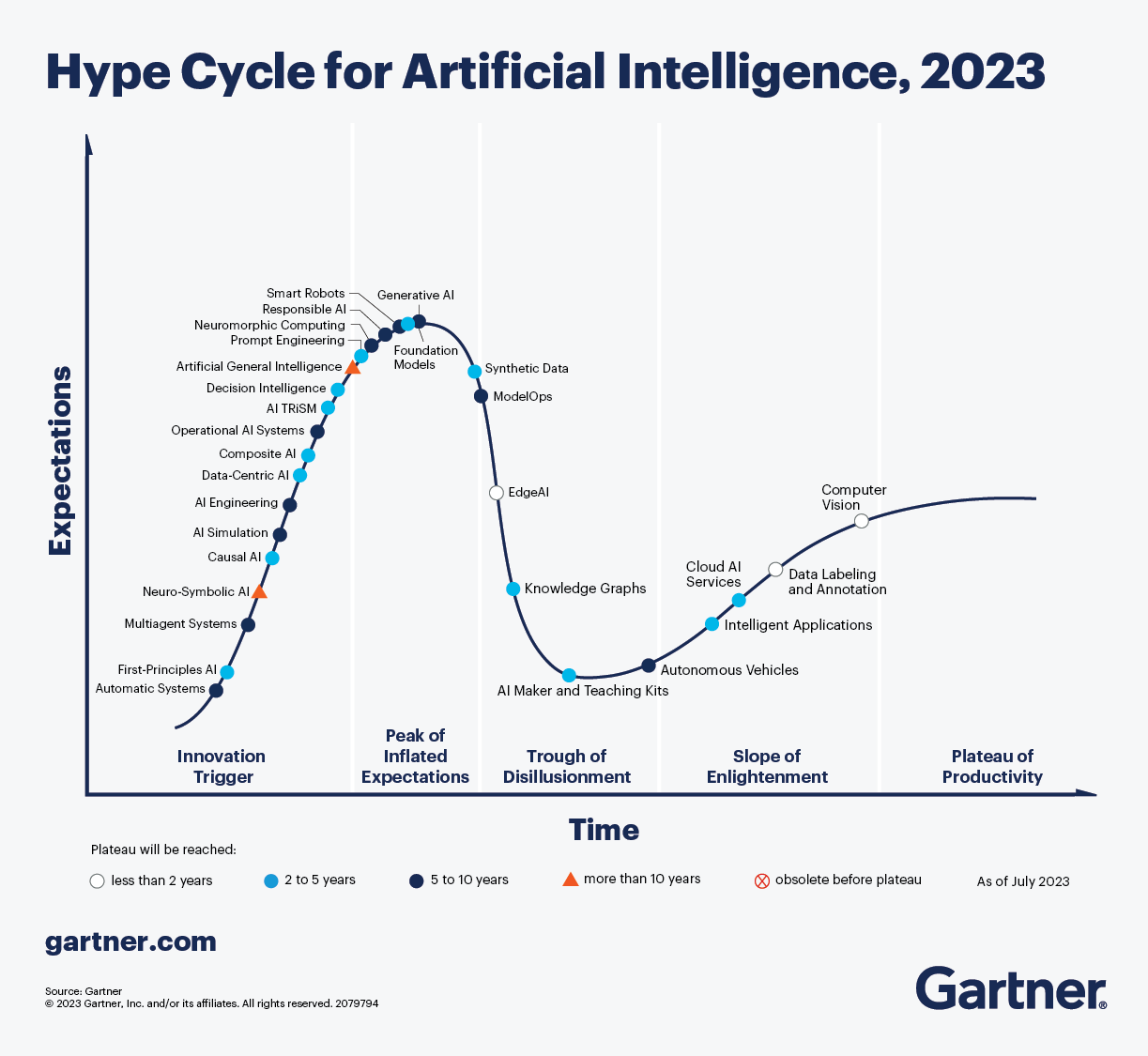A Colder Tone on AI and Software Development
Is AI all wonders or there has been a lot exaggerated buzz ?
Hey Everyone 🚀,
I am Artur and welcome to my weekly newsletter. I am focusing on topics like Project Management, Innovation, Leadership, and a bit of Entrepreneurship. I am always open to suggestions for new topics. Feel free to reach me on Substack and share my newsletter if it helps you in any way.
All technology advancements have their romantic period where we see everywhere how game changer it is. Indeed Artificial Intelligence can bring a lot of advancements to Projects, especially in the Software Development cycles. However, for the technology to be game-changing, we need to see progress in product development lead times and an increase in quality.
Putting on a different perspective
As proposed in this post title, I would like to refrain from shouting about how amazing Artificial Intelligence is to make a more pragmatic and cold read about the status of the technology.
For all technological advancements, there is a honeymoon period and a period where people learn how to use the new capabilities. This is graphically explained by a Gartner Cycle Curve, which is a mere representation of the different stages through which a new ground-breaking technology experiences.

This means there is a lot to talk about the practicality of Artificial Intelligence and most importantly how to use it productively. This technology, as with any other technology, has a learning curve period where IT professionals, from Software Developers to Management, need to learn and improve their skills.
The Developer’s performance
I was recently on a demo in which GitHub’s Co-Pilot and ChatGPT were shown to improve the speed of coding. Of course, it was impressive to see how much was done in only 30 minutes, but I also noticed how skilled the Developer was while prompting the almost perfect commands to the different AIs. The presentation was understandable scripted and tailor-made to impress. To have that proficiency in using the technology, any developer will require time both for training and hands-on practice. This begs the question: Are there immediate gains in Development efforts in real-life projects?

Check McKinsey study for more details, link on the image caption. A recap of the findings:
While developer time savings with generative AI based tools were more modest for complex tasks, our research still finds benefits: the technology can help developers rapidly brush up on an unfamiliar code base, language, or framework necessary to get the job done. Furthermore, when developers face a new challenge, they can turn to these tools to provide the kind of help they might otherwise seek from an experienced colleague—for example, explaining new concepts, synthesizing information (say, by comparing and contrasting code from different repositories), and providing step-by-step guides on how to use a framework so they can do the work. Thus, developers using generative AI–based tools to perform complex tasks were 25 to 30 percent more likely than those without the tools to complete those tasks within the time frame given.
Any experienced Project Manager understands the challenges of achieving milestones are not only the ones related to Developer performance. Bottlenecks can come from heavy human components like dependencies with other teams, resource capacity planning, priorities not aligned with different stakeholders, and so on. This means the immediate gains of AI can be more heavily seen on Quality rather on Lead Time. Especially if the development team still needs to up-skill on Artificial Intelligence.
Advantages of AI on Quality Assurance
One of the most tenuous tasks in preparing a Test phase is the amount of effort that goes into producing test scripts. If we are producing a new software from scratch, this test base needs to be ready once the product reaches staging, with the potential to be used on later releases. Afterwards is the effort required to maintain those test scripts.
I enjoy practical examples and seeing how to put things in place, rather than pure theory. So while researching I came across this blog post: ChatGPT: A Game-Changing Way of Automation Testing
It shows some prompt examples that generate those test cases. As an immediate advantage of Artificial Intelligence, using the technology to create, edit, and maintain the scripts can potentially be something to look more in detail.
This post focuses on Artificial Intelligence and not on Automated Testing, so I won’t go into much detail on the automation part. However, quantifying the gains of Automated Testing is a very interesting approach, since some time is allocated to maintain the Test base. Adding an AI component can impact the effort allocated to test cases.

To conclude
I genuinely believe that we are yet to see the final form of impact that Artificial intelligence will bring to Product Development cycles. Since is a new technology some data about its gain is not accessible easily, and will for sure surprise a lot of decision-making humans. It’s a fact that this is a technology that requires investment on the human part to adapt and build the required skills to use it efficiently.
If you find this post useful please share it with your friends or colleagues who might be interested in this topic. If you would like to see a different angle, suggest in the comments or send me a message on Substack.
Cheers,
Artur

